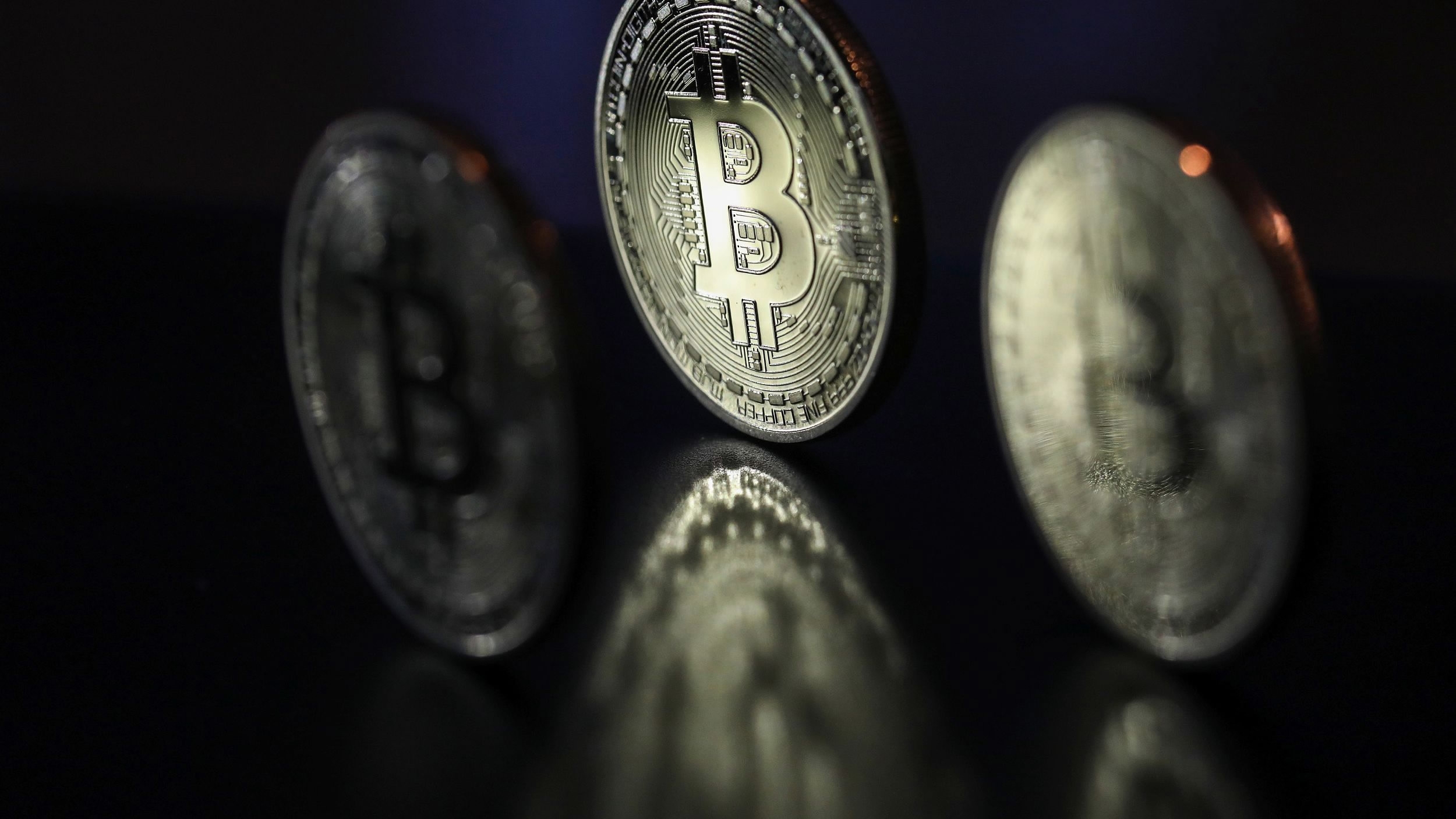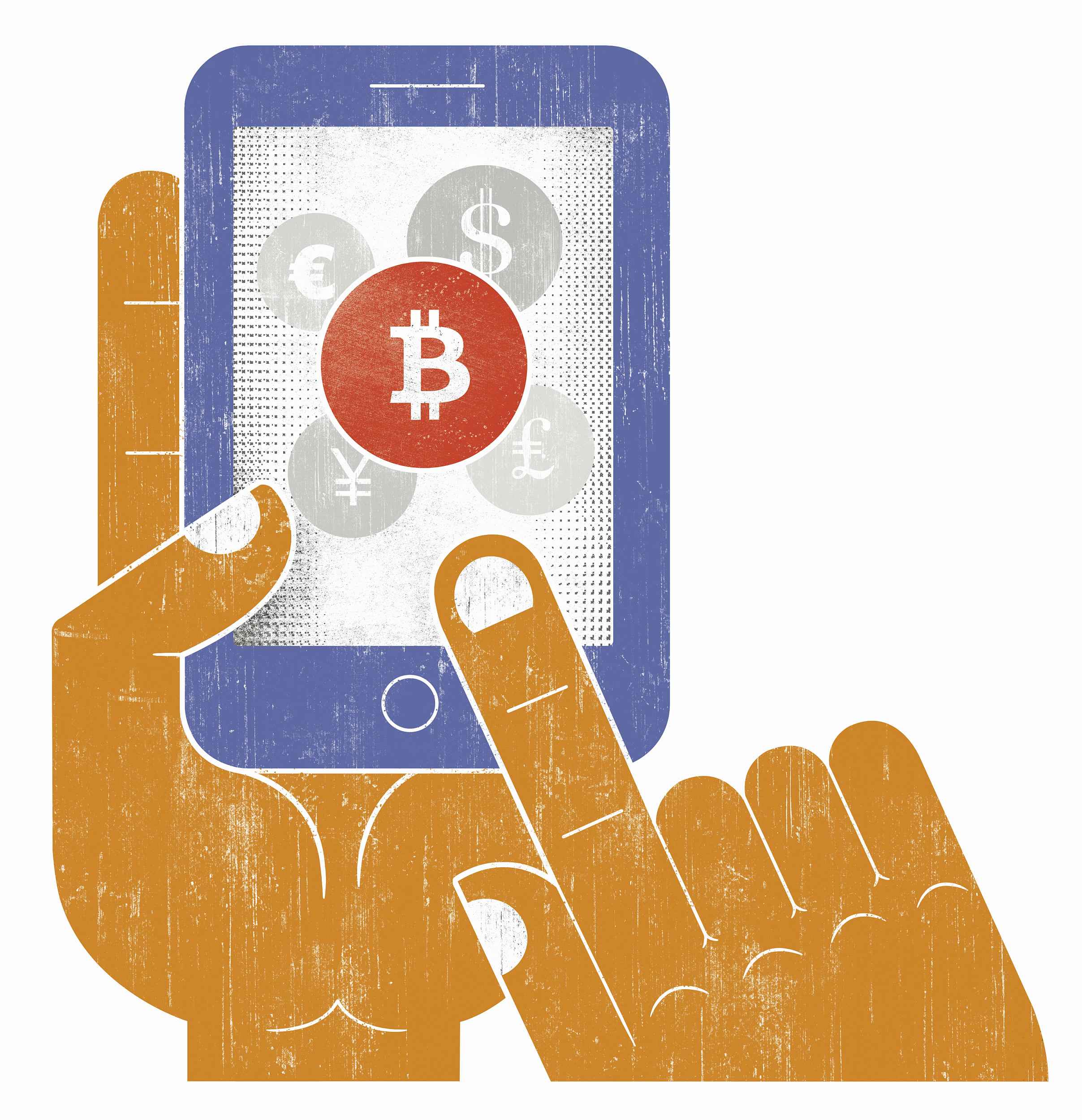
Business
17:22, 13-Nov-2017
Bitcoin vs Bitcoin Cash: Could cryptocurrency clash burst the bubble?
by CGTN's Nicholas Moore

Is the Bitcoin bubble about to burst? After a stunning run in 2017 that has seen it hit new highs week after week, Bitcoin plummeted 29 percent on Monday. After increasing in value more than 10 times over in the past year, could a schism in the Bitcoin community threaten global investments worth billions of US dollars, while undoing the potential of cryptocurrencies?
What’s happened?
After reaching a record high of 7,882 US dollars last Wednesday, Monday saw Bitcoin slump to 5,605 US dollars – the biggest drop since September, which came after moves in China to ban ICOs and close major cryptocurrency exchanges.
At the same time, Bitcoin Cash – an offshoot and rival of Bitcoin launched earlier this year – has made sudden gains in recent days, before also dropping sharply on Monday. At one point, Bitcoin Cash overtook Ethereum to become the second biggest cryptocurrency behind Bitcoin, hitting a peak of 2,478 US dollars on Sunday, before plummeting 28 percent on Monday.
Despite Monday’s drop, Bitcoin Cash has still more than doubled in value since Thursday, marking a large and sudden rise after falling into a slow decline since launching August 1.

VCG Photo
VCG Photo
Are traders swapping Bitcoin for Bitcoin Cash? What’s the difference?
The latest turmoil in the ongoing Bitcoin saga all boils down to an old-fashioned face-off between reform and preserving the status quo. Bitcoin Cash originally split from Bitcoin after developers had calls for an updated version of the cryptocurrency rejected.
The time it takes to trade a Bitcoin has slowed considerably, because of both the huge volume of transactions and limits on the size of “blocks” in the blockchain, which are in place as a security measure. Bitcoin’s blocks are limited in size to 1MB, which it claims prevents cybercrime and DDoS (distributed denial-of-service) attacks.
Bitcoin Cash launched on August 1, increasing the limit on the size of its blocks to 8MB, making transactions much faster. However, less than three weeks after launch, it was clear that investors were struggling to warm to the new offshoot of Bitcoin. By mid-October, Bitcoin Cash had lost more than half of the value it launched with.
The argument which originally caused the fork between Bitcoin and Bitcoin Cash has resurfaced, suggesting that the world of cryptocurrencies is not all that stable. Developers of Segwit2X, a software update which would have increased the limits on Bitcoin and thus sped up transactions, pulled the update last Wednesday, citing “a lack of consensus.”
Bitcoin’s developers supported the halt on Segwit2X, but for many investors, miners and entrepreneurs, it appears to have been the last straw, pushing them to sell Bitcoin and buy Bitcoin Cash instead.
Is Bitcoin’s bubble about to burst?
It depends on which side of the fence you’re asking. Bitcoin supporters will say that the current decline is a temporary drop, and that the scale and security of Bitcoin’s model will prevent it from a larger collapse.
However, Bitcoin Cash developers and miners are becoming more and more vocal in their support of the new cryptocurrency, claiming it provides a real alternative to the old and stale model of Bitcoin, which is at risk of collapsing under the weight of having so many users and slow transactions.
Talking to CoinDesk, Bitcoin Cash developer Juan Garavaglia said "Bitcoin… is unable to execute, has a poor roadmap [and is] disconnected with market needs. We can execute, we have smooth coordination with key market actors and we address market needs."

VCG Photo
VCG Photo
There are also concerns that the sudden price rise in Bitcoin Cash was the result of manipulation from pro-Cash miners and investors, coordinating mass-efforts to raise the profile of the Bitcoin offshoot. Zhao Dong, a Beijing-based trader, told CoinDesk that Bitcoin Cash “have money, they have hash power, they have everything need to pump the bitcoin cash price.”
The rift between two schools of thought in the cryptocurrency community goes beyond software and deep into money markets, potentially harming assets worth billions of US dollars by investors around the world.
It also unmasks an existentialist crisis within Bitcoin – what is it, and what was it created for? Is it a currency, or just an investment vehicle? If it is a decentralized currency, then why is one group of developers calling the shots on its direction? These questions could pose a bigger threat to Bitcoin than anything else.

SITEMAP
Copyright © 2018 CGTN. Beijing ICP prepared NO.16065310-3
Copyright © 2018 CGTN. Beijing ICP prepared NO.16065310-3